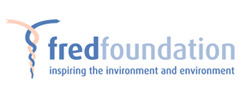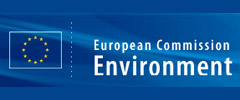Stop the WTO talks and bury the Doha round!
More than 70 European NGOs demand a new approach to the multilateral trading system (Text in English and Dutch)
28.06.2006 |Sascha Gabizon
John Hilary from War on Want said: “The time has come to admit that the current WTO system will not result in a pro-development deal. The Doha round must be scrapped- the current package would be a bad deal, serving exclusively the interests of the biggest corporations around the world. The only chance for a real development agenda is to bury the Doha Round, tear up the text and start anew.”
Campaigners call on rich nations to completely re-evaluate their trade-policy and demand that the way trade negotiations are conducted should be fundamentally reformed. Many of the Civil Society Organisations are also signatories to a global demand to governments for the talks to be abandoned which has now been signed by over 100 organisations [2]. They also question the legitimacy of the Mini-Ministerial in which the majority of WTO members will not even be represented.
The campaigners dismiss EU and U.S. attempts to cast the Doha Agenda as a multilateral effort to advance development as completely hypocritical. A series of recent economic reports [3] show steadily shrinking gains for developing countries: The World Bank reduced initial projections of $ 500 billion in 2003 to a mere $ 96 billion in 2005, with only $16 billion going to a few developing countries such as Brazil, India and China. The rest of the money is flowing to developed countries. The majority of the population in many developing countries, especially sub-Saharan and other least developed countries, will become even poorer.
Instead of reviewing the Agreement on Agriculture to address food sovereignty, livelihood concerns, and survival needs of hundreds of millions of farmers worldwide, agriculture talks have focused on expanding global markets for exporters and large agribusinesses from developed and some developing countries. In the NAMA negotiations on industrial tariffs and natural resources, the tariff cuts and deregulations proposed by developed countries will have significant and detrimental long-term impacts world wide, especially in developing countries, such as deindustrialisation, loss of jobs and further exploitation of natural resources.
Sonja Meister of Friends of the Earth Europe said: “The proposals on the table for these talks seriously threaten the livelihood of people, especially women, and the environment around the world. Cheap food, clothing or electronic goods are of little use to people who cannot earn a living in decent working conditions. Escalating international trade in natural resources is likely to damage global biodiversity and increase poverty for millions in the world’s poorest communities.”
Barbara Specht from WIDE said: “These talks have degenerated into blackmail of the governments of developing countries, who are threatened with a break-down of the multilateral trade system to make them accept a detrimental deal. We are for multilateral rules for international trade. But we have to explore powerful new rules and policies that promote human and women’s rights, development and the environment in all countries around the world.”
Notes:
[1] The Seattle to Brussels Network is a network of European civil society
organisations aiming to develop a sustainable, socially and democratically
accountable trade system.
S2bnetwork
[2] The open letter “Multilateral trading System: time for a new approach” was signed by 103 international Organisations and was sent out world wide to ministers. It provides background information to this statement and can be downloaded from
S2Bnetwork
[3] A series of devastating reports on the potential outcomes of the Doha Round were published by the World Bank, the UN, and several think tanks including “Agricultural Trade Reform and the Doha Development Agenda”, Kym Anderson and Will Martin et. al. World Bank Report, Nov.1, 2005 “Winners and Losers: Impact of the Doha Round on Developing Countries”, Sandra Polaski, Carnegie Endowment for International Peace, Washington DC, 2006 “Global Overview Trade Sustainability Assessment of the Doha Development Agenda” from the EU, final draft report “The WTO’s Empty Hong Kong Development Package: How the WTO’s 97% Duty Free Proposal could leave poor Countries worse off”, Action Aid International and Public Citizen
Het is tijd voor een nieuwe benadering van het internationale handelssysteem
Meer dan honderd organisaties eisen stopzetting van de Doha ronde van de WTO
Genčve, 27 juni 2006 - In een brief die vandaag gestuurd werd aan de handelsministers in de WTO, hebben meer dan honderd organisaties uit het maatschappelijk leven uit de hele wereld de legitimiteit verworpen van een exclusieve ministeriele bijeenkomst die deze week in Genčve gehouden wordt. Ook hebben ze de handelsministers nadrukkelijk gevraagd om een nieuwe benadering van het internationale handelssysteem in te zetten.
De ondertekenaars vertegenwoordigen maatschappelijke organisaties uit meer dan dertig landen, waaronder de belangrijke spelers in de WTO - de VS, EU, Japan, Canada, Australië en India, naast kleinere landen als Senegal, Uganda, Nigeria en Bolivia.
"De huidige onderhandelingen sluiten op dit moment elke mogelijkheid uit dat de meerderheid van de wereldbevolking, met name dat deel dat leeft in arm gemaakte ontwikkelingslanden erop vooruit gaat," stelt de brief. "Inplaats daarvan zullen veel van de voorstellen binnenlandse beleidsopties van ontwikkelingslanden radicaal uitsluiten."
Een reeks economische rapporten over de te verwachten uitkomsten van de Doha Ronde (genaamd naar het akkoord dat in 2001 gesloten werd op de Ministeriële WTO-top in Doha, vert.), waaronder die van de Wereldbank, de VN, de Carnegie Endowment for International Peace en de Europese Commissie, heeft vastgesteld dat ontwikkelingslanden als geheel netto verliezers zullen zijn van de Doha Ronde, terwijl de meeste winst die van de Doha- afspraken te verwachten is, in buitengewone mate naar de rijke landen zal vloeien. De brief verklaart dat de onderhandelingen volharden in het ontkennen van belangrijke problemen op het gebied van de handel in landbouwproducten, zoals dumping, terwijl ze ondertussen concrete voorstellen verwerpen die zijn gebaseerd op zekerheid van levensonderhoud en rurale ontwikkelingsdoelen.
De brief kaart ook de 'fuzzy math' ('warrig rekenwerk') aan van de 2,8 miljard dollar van het schema van "aid for trade" (hulp in ruil voor handel) van de ontwikkelde landen waarmee ze pretenderen steun te leveren voor de 'aanpassingskosten' van de ontwikkelingslanden, waarbij eerdergemaakte beloftes meegeteld wordt om ontvankelijkheid te creëren voor de liberalisering die de Doha agenda oplegt. "We zijn volstrekt gekant tegen het huidige hulp voor handelsmechanisme, waarvan inhoud en tijdschema gebonden zal zijn aan de bereidheid van de ontvangers om de door de Doha agenda opgelegde liberalisatie te aanvaarden," beweert de brief. "De ruil is absurd: met geld kan geen beleidsruimte teruggekocht kunnen worden, en er ligt niet eens nieuw geld op tafel."
Terwijl de brief de potentiële effecten aanvecht van de Doha Ronde als een anti- ontwikkelingsronde die de particuliere belangen behartigt van de grootste bedrijven in de wereld, waarvan de meeste hun hoofdkantoor in de ontwikkelde wereld gevestigd hebben, worden in de brief drie eisen aan de handelsministers gesteld:
- Het verwerpen van de legitimiteit van de mini-ministeriële top van juni die de effectieve deelname van alle ministers uitsluit, en weigeren daar verder aan mee te werken;
- Het verwerpen van elke poging van de Directeur-Generaal, Pascal Lamy, om zijn eigen voorstel voor te leggen aan de ministers;
- Het begraven van de Doha agenda en starten van een nieuwe benadering van het internationale handelssysteem, die mensenrechten voorstaat en een ontwikkeling waarbij mensen centraal staan en ecologische duurzaamheid.
is er de website: Our World is not for Sale.



































